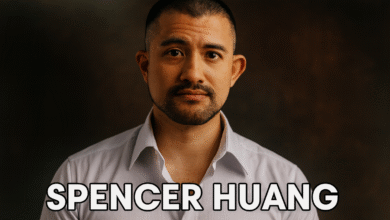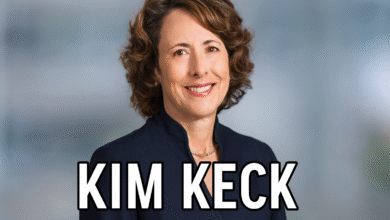Deborah Watson Stokes: A Bold Prosecutor’s Rise to the Bench Amid Triumphs and Controversy
Celebrated for courtroom excellence yet challenged by public scrutiny, Deborah Watson Stokes stands at a pivotal point in her legal legacy.

Introduction
Deborah Watson Stokes has earned a formidable reputation in Philadelphia’s legal community. With over three decades of service as a prosecutor, she has handled more than 150 first-degree murder trials and mentored a generation of young attorneys. Her courtroom achievements and leadership roles have brought her widespread recognition, while an ethics violation from 2015 has added a layer of controversy to her public profile.
Now a 2025 judicial candidate for the Philadelphia Court of Common Pleas, she seeks to transition from a seasoned trial lawyer to a fair and impactful judge. Her story is one of power, precision, mentorship, and the constant balancing act between professional wins and ethical expectations.
Quick Bio
| Attribute | Detail |
|---|---|
| Full Name | Deborah Watson Stokes |
| Nationality | American |
| Ethnicity | African American |
| Birthplace | Detroit, Michigan |
| Education | Michigan State University (BA), Catholic University (JD) |
| Legal Career | Philadelphia District Attorney’s Office (1990–2015) |
| Known For | 150+ homicide trials, legal mentorship, leadership roles |
| Family | Married, mother of three |
| Campaign Role | Candidate for Court of Common Pleas, 2025 election |
Early Life and Influences
Deborah Watson Stokes was raised in Detroit, Michigan, in a tight-knit, working-class family. As the youngest of six siblings, she witnessed firsthand the values of discipline, education, and community service. Her parents and older siblings were union workers across industries like teaching, automotive, and utilities.
These formative years played a vital role in shaping her passion for justice. The experience of growing up in a household that valued fairness and advocacy laid the groundwork for her eventual journey into law and public service.
Education and Legal Foundations
Watson Stokes pursued her undergraduate degree at Michigan State University, majoring in political science. As a student, she engaged with civil rights organizations and became a member of Delta Sigma Theta Sorority, reinforcing her commitment to community empowerment and social change.
She later attended the Columbus School of Law at the Catholic University of America, earning her Juris Doctor in 1990. During her legal studies, she took on prestigious internships with the U.S. House Judiciary Committee, the U.S. Attorney’s Office, and civil rights firms—experiences that honed her legal instincts and broadened her perspective.
Entry into the District Attorney’s Office
Deborah joined the Philadelphia District Attorney’s Office in September 1990. Her early years were spent in juvenile and municipal courtrooms, where she quickly distinguished herself for her detailed case preparation and commanding courtroom presence.
Her passion for justice and dedication to public safety led to her selection for the elite Homicide Unit—a promotion that would define much of her career. Her reputation grew rapidly as someone who was both relentless in the courtroom and compassionate toward victims’ families.
Dominating the Homicide Unit
Watson Stokes spent 18 years in the Homicide Unit, trying more than 150 first-degree murder cases—a record rarely matched, especially among female prosecutors in Pennsylvania. Her prosecutorial skill, sharp legal arguments, and courtroom leadership earned her the nickname “First Lady of Homicide.”
She became known for her ability to manage complex, emotionally charged trials, often involving high-profile and sensitive matters. Her role expanded to include supervising attorneys, leading special projects, and training young lawyers in effective courtroom strategy and ethics.
Leadership, Awards, and Mentorship
Her influence extended beyond the courtroom. Watson Stokes has been a mentor to dozens of attorneys, many of whom now serve in leadership positions or on the bench. Her focus on supporting women and attorneys of color has left a lasting impact on Philadelphia’s legal system.
She has received numerous awards throughout her career, including the Justice Juanita Kidd Stout Woman of Distinction Award, the Catholic University Distinguished Public Service Award, and accolades from bar associations and victim advocacy groups.
Ethics Violation and Public Scrutiny
In 2015, near the end of her career at the DA’s office, Deborah Watson Stokes was fined by the Philadelphia Board of Ethics. She had promoted a retirement party that also functioned as a political fundraiser, which violated the city’s Home Rule Charter prohibiting political activity by civil employees.
Although the fine was modest and her cooperation was acknowledged, the incident raised eyebrows. For critics, it served as a cautionary tale about boundaries in public service. For supporters, it was a minor blemish on an otherwise exemplary career.
2025 Judicial Campaign
In 2025, Watson Stokes reentered public life as a candidate for Judge of the Philadelphia Court of Common Pleas. She won significant support during the May Democratic primary, earning over 100,000 votes and securing a place on the November ballot.
Her campaign emphasizes her courtroom experience, her commitment to fair sentencing, and her desire to promote ethical leadership in the judiciary. She has been rated “Recommended” by the Philadelphia Bar Association and endorsed by several local political organizations and ward committees.
Income and Public Service Compensation
While Deborah Watson Stokes’s exact earnings are not publicly disclosed, estimates place her compensation during her tenure as an Assistant District Attorney between $80,000 and $120,000 annually. Her income came solely from public service, and she has not been involved in private legal practice.
Her campaign financing for the 2025 judicial race has been modest, relying primarily on local support and professional endorsements rather than large fundraising efforts.
Personal Life and Values
Deborah is married and a mother of three. While she maintains privacy regarding her family, she has often spoken about how her role as a mother has shaped her views on fairness, justice, and responsibility.
She credits her success to the community, her family’s work ethic, and the mentorship she received early in her career. Her values remain centered on service, equity, and the belief that the legal system must be both fair and compassionate.
Legacy and Public Image
Watson Stokes’s career reflects both resilience and complexity. She is praised for her exceptional prosecutorial record and unwavering mentorship. Yet, the 2015 ethics fine continues to be a point of discussion, especially among voters weighing transparency and trust.
Still, her impact is deeply felt throughout Philadelphia’s legal circles. As a mentor, a leader, and a relentless advocate for justice, she has shaped countless careers and trial outcomes. Her transition from prosecutor to judge may further amplify her long-standing influence on the justice system.
Conclusion
Deborah Watson Stokes embodies the power and challenges of a life in public law. Her decades-long career as a prosecutor was marked by high-profile victories, leadership roles, and a dedication to developing new legal minds. Her journey is not without controversy, but it is defined more by her service and strength than by missteps.
As she seeks to take on the robe and gavel, she brings with her unmatched courtroom experience, deep community ties, and a desire to elevate Philadelphia’s judiciary. Whether championed or critiqued, her presence in the legal world is undeniable—and her next chapter may prove to be her most influential yet.
Frequently Asked Questions
Who is Deborah Watson Stokes?
She is a former prosecutor from the Philadelphia District Attorney’s Office and a current candidate for judge in the Court of Common Pleas.
What is Deborah Watson Stokes known for?
She is best known for her work in the Homicide Unit, where she tried over 150 first-degree murder cases.
Has she been involved in controversy?
Yes, she was fined in 2015 for promoting a retirement event that also served as a fundraiser, a violation of city ethics rules.
What is her background in education?
She holds a BA in Political Science from Michigan State University and a JD from Catholic University.
What are her values as a judge?
Fairness, community safety, mentorship, and ethical leadership in the courtroom.




